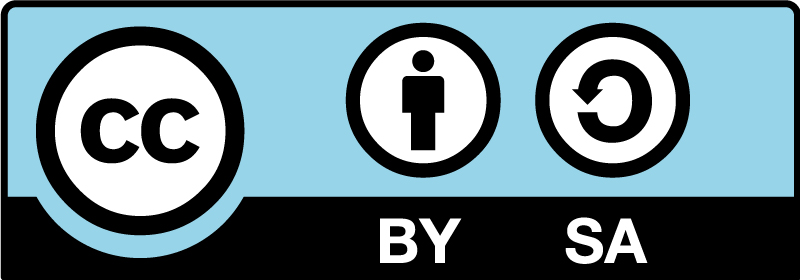The Tri-Agency Open Access Policy: How UBC Library Can Help
The Policy
The Tri-Agency Open Access Policy on Publications recently came into effect, with new requirements for grants awarded by the major Government of Canada granting agencies. The three granting agencies are the Canadian Institutes of Health Research (CIHR), the Social Sciences and Humanities Research Council of Canada (SSHRC), and the Natural Sciences and Engineering Research Council of Canada (NSERC).
The policy applies to all SSHRC and NSERC grants awarded after May 1, 2015. CIHR grants have required open access compliance since January 1, 2008. The policy requires that all peer-reviewed journal publications arising from Tri-Agency-supported research are freely accessible online within 12 months of publication.
How to Comply
To comply with the Tri-Agency Policy, researchers must make their publications freely accessible in one of two ways:
- Publish in an open access journal, or in a journal that offers an open access option on its website within 12 months. Librarians can help you identify high-impact scholarly open access journals. There may be an Article Processing Charge (APC) for the author. Starting September 2020, the UBC Open Access Fund supports open access charges for faculty in SSHRC-aligned disciplines.
- Deposit the post-print or published version of the publication in an institutional or disciplinary repository. Publishers that allow self-archiving often set embargo periods, or fixed amounts of time that must pass before authors can archive their own work. Note that embargo periods exceeding 12 months are not in compliance with the policy. If the publisher sets an embargo period of 12 months or longer on a Tri-Agency-supported article, you could potentially find yourself out of compliance with the Tri-Agency Open Access Policy. To avoid this problem, the UBC Library can work with you or on your behalf to deposit your articles in cIRcle (UBC’s institutional repository), or assist you in negotiating with publishers.
Grant recipients must also acknowledge Agency contributions in all peer-reviewed publications, and quote the funding reference number the agency supplies.
Who does the Policy Affect?
The Policy affects all researchers funded in whole or in part by Tri-Agency grants awarded after 1 May, 2015.
If an Agency is one of multiple funding sources for the research, resulting publications must comply with the policy.
If the author is a joint author (either with another UBC researcher, or with external collaborators), resulting publications must comply with the policy.
Note: Individuals in receipt of graduate scholarships and fellowships are not required to adhere to the policy. However, the Agencies encourage all researchers to adopt the open access policy as a best practice for disseminating their research findings.
What are the Requirements for Research Data?
CIHR
Recipients must also comply with requirements pertaining to data, including:
- Deposit bioinformatics, atomic, and molecular coordinate data into the appropriate public database. The Annex provides examples of appropriate repositories or databases.
- Retain original data sets for a minimum of five years after the end of the grant, published or unpublished.
NSERC & SSHRC
At this time, NSERC and SSHRC recipients are not required to make their data openly accessible.
Why Open Access?
The basic principle of Open Access is to make research available online without cost or restrictions, as long as credit is given to the author(s). For more information, see the Open Access guide as well as the Open UBC website.
- Gold OA: Publishing in an Open Access journal. This may involve an Article Processing Charge (APC) that covers the cost associated with publication. The cost of publishing in open access journals is an eligible expense under the Use of Grant Funds.
- Green OA: Refers to self-archiving (typically, of articles published in conventional subscription-based journals) in a disciplinary or institutional repository.
Publishing in an Open Access Journal
To comply with the Tri-Agency Policy, recipients must publish in an open access journal or a journal that offers an open access option on its website within 12 months. Some journals are hybrid journals, which offer conventional publishing and OA options. UBC librarians can help you identify high-impact scholarly open access journals.
Resources for publishing Open Access:
- UBC Scholarly Communications’ Author Rights guide, for information on managing copyright and authors’ retention of rights
- UBC Library’s guide to Publishing a Journal Article, which includes OA options
- List of UBC’s Institutional Memberships with Open Access publishers that provide discounts on article submission costs for UBC researchers
- Think Check Submit: an online resource to help researchers identify quality journals, including OA options
- Directory of Open Access Journals (DOAJ): a comprehensive list of free, full text, quality controlled scientific and scholarly journals
Archiving in a Repository
Self-archiving refers to depositing a copy of a publication (usually an article in a conventional, subscription-based journal) in an institutional or disciplinary repository.
Institutional repository: An open online collection of the scholarship of an institution’s researchers. The UBC Library can work with you or on your behalf to deposit your articles in cIRcle, UBC’s institutional repository.
Disciplinary or subject repository: An open online collection of publications in a particular subject area. Search for repositories at the Directory of Open Access Repositories (OpenDOAR).
The Tri-Agency Policy requires that the version archived in a repository must be a post-print or published version of the publication, after it has been through the peer-review process. Researchers can use author’s addendums to negotiate with publishers to ensure they retain the rights to self-archive the post-print or published version within 12 months. It is the responsibility of the recipient to ensure they are in compliance.
Archiving pre-print versions of publications (before the peer-review process) will not be considered in compliance with the Tri-Agency Policy.
Scholarly sharing sites that require registration (such as ResearchGate) are not openly accessible, and will not be considered in compliance with the Tri-Agency policy.
Archiving on a personal website or blog does not permit a wide audience access to the journal, and will not be considered in compliance with the Tri-Agency policy.
Resources for self-archiving in a repository:
- cIRcle and UBC Library’s Author’s Guide to Self-Archiving, for help with depositing work in a repository, identifying publication versions, and navigating permission seeking
- cIRcle’s User Guide for uploading a submission to UBC’s institutional repository
- Sherpa/Romeo is a database that tracks publishers’ archiving and copyright policies
- Directory of Open Access Repositories (OpenDOAR), a directory of academic OA repositories
- The Tri-Agency Toolbox lists some repositories and resources for archiving
- SPARC Canadian Author Addendum, a tool to help authors reserve certain rights in publication agreements
- Scholar’s Copyright Addendum Engine, a tool to help authors reserve certain rights in publication agreements
How do I Find Further Information or Get Help?
The Policy:
- The Tri-Agency Policy, the Tri-Agency Policy FAQ, and the Toolbox
Contact:
- Our Scholarly Communications librarians or your liaison librarian
- cIRcle, UBC’s digital repository for research and teaching materials
- UBC Library’s Research Data Management Services
Some of the above information was adapted from The Tri-Agency Open Access Policy guide by Simon Fraser University, and is used with permission.

With the exception of the images, the content on this website is licensed under a Creative Commons Attribution-ShareAlike 4.0 International License.


